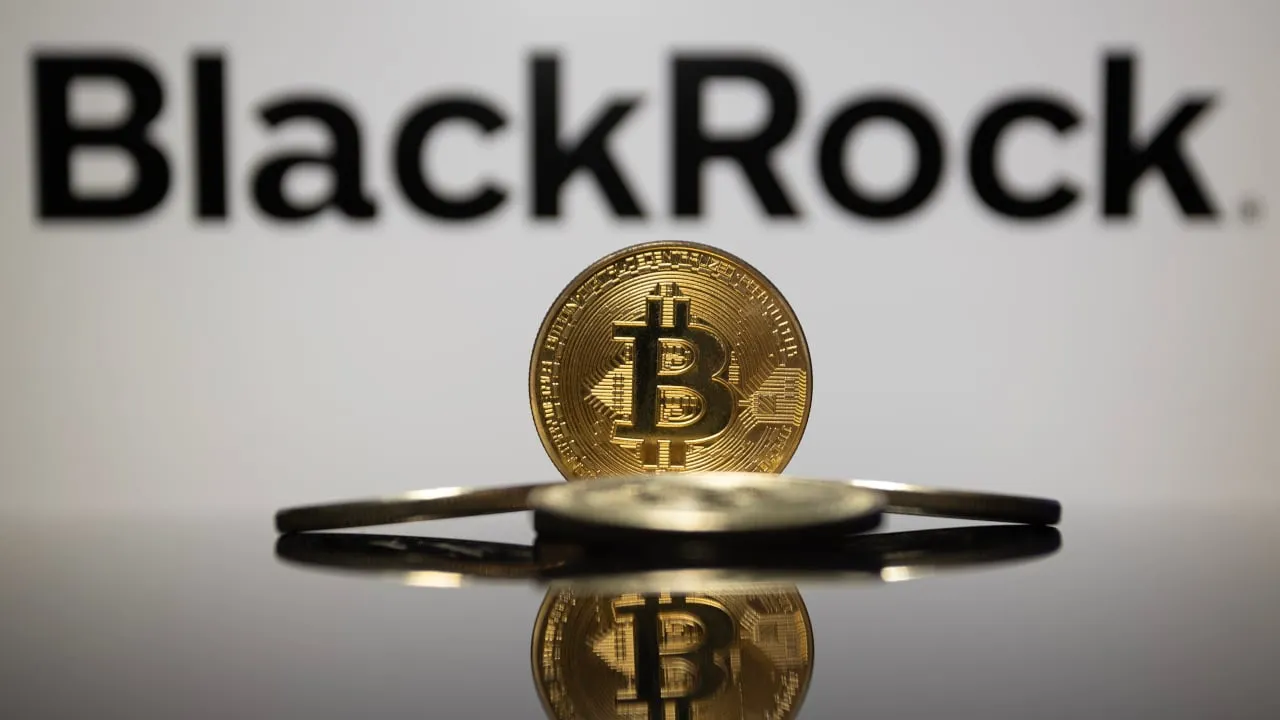BlackRock Says Clients Are Buying Bitcoin to Hedge Against US Debt Crisis

Bitcoin is certainly “risky,” but it's not a “risk asset,” the asset manager claims.
Is Bitcoin a “risk-on” or “risk-off” asset? Analysts at the world’s largest asset manager BlackRock say the leading digital currency qualifies as neither.
In a PowerPoint document shared Wednesday, BlackRock said its clients largely view Bitcoin as insurance against a possible U.S. debt crisis, and that Bitcoin has “little fundamental exposure” to the macro variables that affect other asset classes. Some of its defining attributes, BlackRock analysts noted, are Bitcoin’s limited supply supply, global nature, and ease of transfer across borders.
“The growing concerns in the U.S. and abroad over the state of U.S. federal deficits and debt has increased the appeal of potential alternative reserve assets as a potential hedge against possible future events affecting the U.S. dollar,” BlackRock’s analysts wrote.
“In our experience with clients to date, this explains a substantial portion of the recent broadening institutional interest in Bitcoin,” they added.
The United States is currently $35 trillion in debt, with an official annual budget deficit of $2 trillion, according to US Debt Clock. Both Republican Senator Cynthia Lummis and ex-President Donald Trump have recommended using Bitcoin to help clear the national debt by establishing a strategic Bitcoin stockpile of 1 million BTC.
The report’s authors described Bitcoin as a “non-sovereign monetary alternative” that is largely detached from both “banking system crises, sovereign debt crises, currency debasement,” and “geopolitical disruption.” In the long run, they see Bitcoin’s adoption rising in proportion to concerns over these crisis events.
The analysis falls in line with the years-long narrative of Bitcoin as an “uncorrelated” safe haven asset. For years, Bitcoin proponents have argued that in times of trouble, and as the U.S. dollar weakens, investors will flock to scarce assets such as Bitcoin. But in practice, Bitcoin hasn’t behaved this way in recent years.
Since at least 2020, and following the pandemic-induced market crash in March of that year, Bitcoin has traded in near-lockstep with Wall Street, and tech stocks in particular. With respect to “geopolitical disruption,” Bitcoin sold off by 6% within 10 days of Russia’s invasion of Ukraine in 2022, but had posted a net 15% gain by the 60-day mark.
BlackRock attributes these apparent contradictions to Bitcoin’s immaturity as an asset, but also its “high saleability” during panic periods compared to less liquid assets like real estate.
At the moment, BlackRock says Bitcoin is still a “risky” asset due to regulatory changes and its status as an emerging technology. These risks, however, are not shared with other investment classes, according to the asset manager.
“Simple ‘risk-on’ versus ‘risk-off’ frameworks lack the nuance to be broadly useful,” BlackRock analysts wrote.
Related News
- Bitcoin Hater Jamie Dimon Brags That JPMorgan Is a 'Real' Blockchain User
- Massive Twitter Hack Tries, Fails to Promote Crypto Scam in 'Most Incompetent' Hack of the Year
- SEC Charges Another DeFi Platform, Insists Projects Can’t Hide Behind ‘Decentralization’
- Inflation in Check? Fed Cuts Interest Rates for First Time in Four Years
- Barron Trump Is a Time Traveling Crypto Degen, Says Jan 6. Organizer
- BitGo Takes On Coinbase and Tether With USDS Stablecoin Launch
- GameStop CEO Ryan Cohen Agrees to Nearly $1 Million Settlement With FTC
- Is It NPR or AI? Google Turns Your Notes Into Incredibly Real-Sounding Podcasts
- Bit Digital Makes Waves at MYRIAD Tides
- Why a Giant Inflatable Bitcoin Rat Now Stands at the Birthplace of the Fed
© 2025 DeFi.io